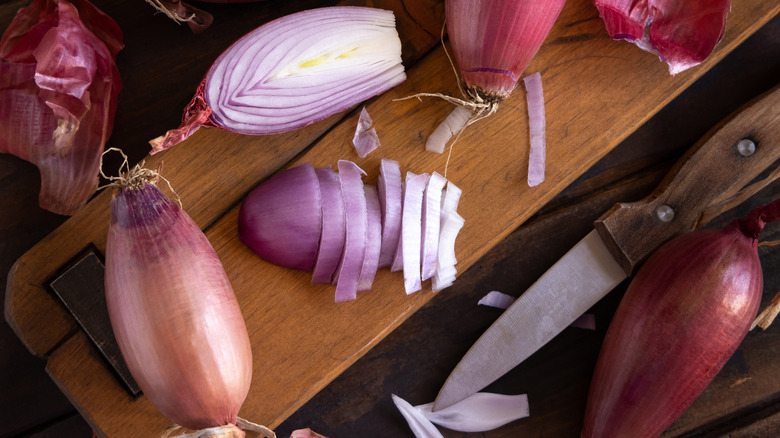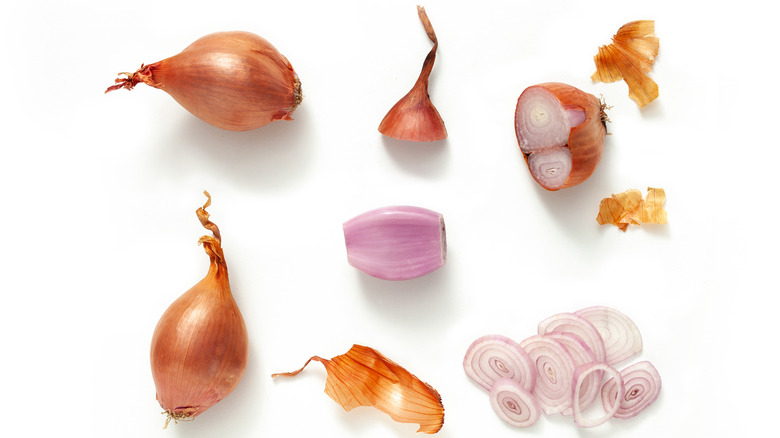What The Milky Substance Coming From Your Shallot Is
Allow us to set the scene: you're about to cook a meal that you plan to top with a tasty shallot confit, you grab a bulbous specimen of this allium family veg, and painstakingly peel off the outer skin. You then grab your knife and vegetable cutting board and slice the shallot in half, but to your surprise, a mysterious, white, milky liquid oozes out of your shallot. This strange phenomenon can also occur in onions — and while shallots are not a type of onion, they are in the same family.
But before you throw the shallot into the trash bin and rinse the bizarre milky white liquid off of your cutting board, know that this substance common to shallot and onion alike poses no problem for cooking and eating, according to Kitchn. Still, the curious cook and inquiring minds surely want to know: what exactly is this mysterious fluid?
The milky substance is made of water, hydrogen sulfide, sulfuric acid, and sulfur dioxide
The liquid coming from your shallot or onion is made up of water, hydrogen sulfide (the pesky compound that causes your eyes to tear when cutting them), sulfuric acid, and sulfur dioxide (via Foods Guy). Given enough time after harvesting, this liquid can come from the exposed vegetable cells when this family of vegetables is cut. The white liquid is not, on its own, a sign that an onion has gone bad. However, if you observe a substance that is gel-like in its consistency and is accompanied by other signs of spoilage, those shallots are ready for the trash. You know shallots have gone bad when they're mushy, leak prior to cutting, look very yellow, or have a foul smell (per Home Cook Basics).
So this substance is not a sign of spoilage but an indication that it is closer to the end than the beginning of its post-harvest life. Additionally, veggies in the allium family are dry-cured, so reintroducing moisture when storing isn't recommended, so stop putting shallots in your refrigerator. And as always, in prep, observe all your produce for signs of spoilage, and err on the side of caution, but a bit of onion juice shouldn't hurt a bit!

